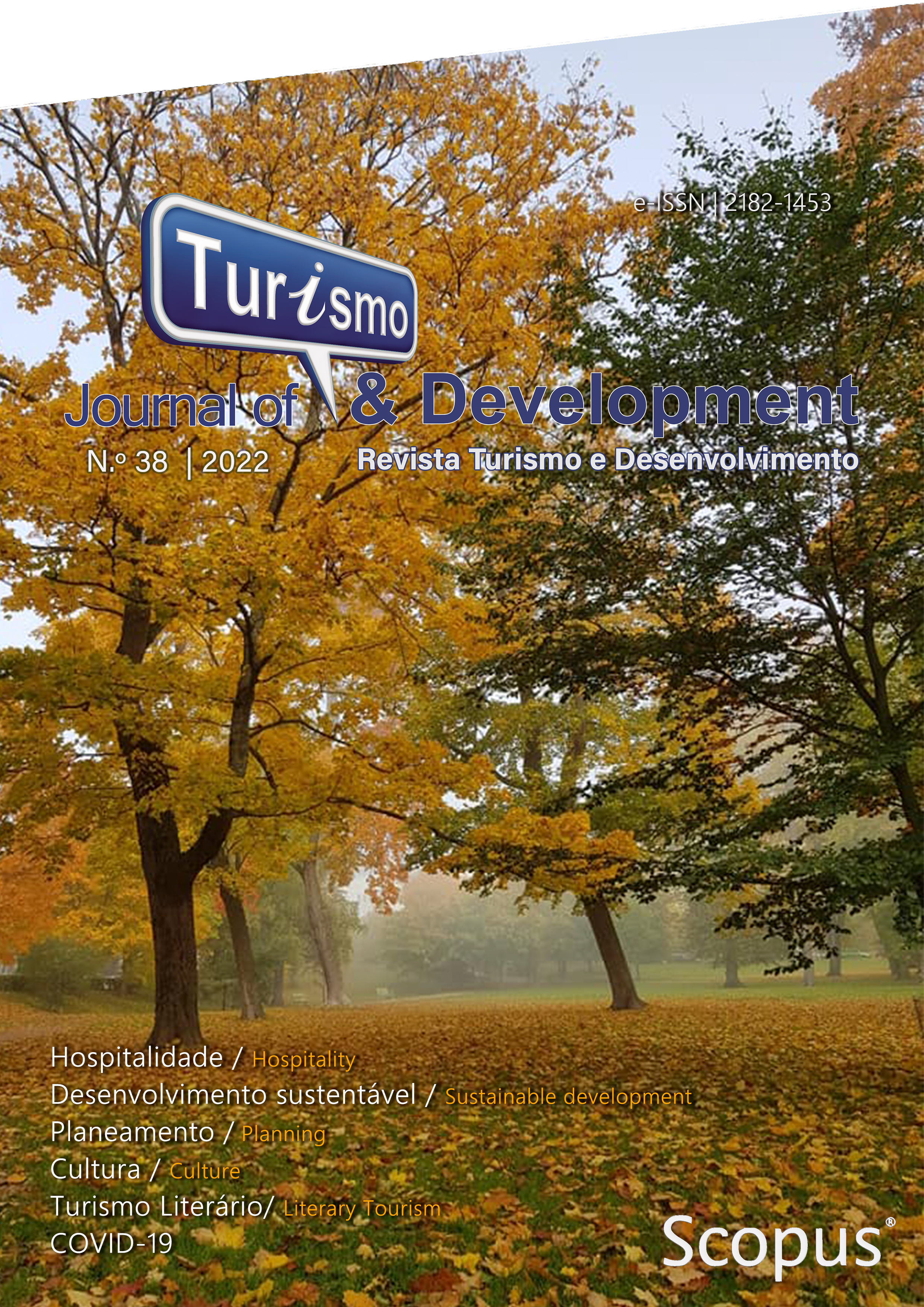Os impactos económicos da Covid-19 em eventos
o caso da Romaria de Santa Marta, Viana do Castelo
Resumo
O turismo religioso em Portugal tem tido um papel de grande relevo para o desenvolvimento económico das regiões. Este tipo de turismo não se trata apenas de uma visita a locais sagrados. A Romaria de Santa Marta é uma das mais importantes romarias do Alto Minho (Portugal), logo atrás da Romaria da Sra. D'Agonia, inserida no ciclo das romarias de verão da região. Este ciclo inicia-se entre o final do mês de julho e culmina no início de setembro. A Romaria de Santa Marta é um evento que se realiza no segundo m de semana de agosto, em Santa Marta de Portuzelo, Viana do Castelo, Portugal. Ao longo dos anos tem ganho notoriedade rivalizando com outras romarias se atendermos ao crescente número de romeiros que atrai e ao volume das atratividades que tem no seu programa. Este evento destaca-se, naturalmente, pela vertente religiosa, mas também pelas vertentes etnocultural, artística e desportiva. Procurámos realizar um estudo para perceber o impacto provocado pela Covid-19 do ponto de vista económico e em que medida a pandemia condicionou o plano de atividades para a concretização da Romaria. Metodologicamente, recorremos a uma análise de conteúdo analisando as receitas e despesas que a direção executiva das festas teve nos últimos anos, comparando-as com o ano de 2020, início da pandemia. Através do estudo, foi possível verificar que se registou uma adaptação à realidade então vivida. Os valores das despesas baixaram, mas em termos percentuais, curiosamente, as receitas aumentaram visto que continuou a atrair um grande número de visitantes, sobretudo por causa da vertente religiosa.





